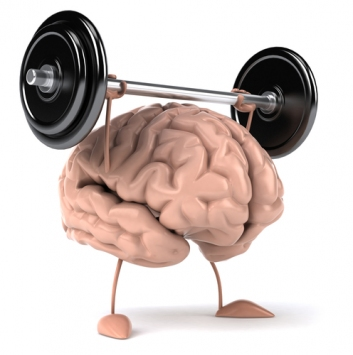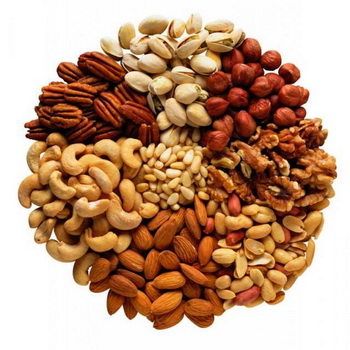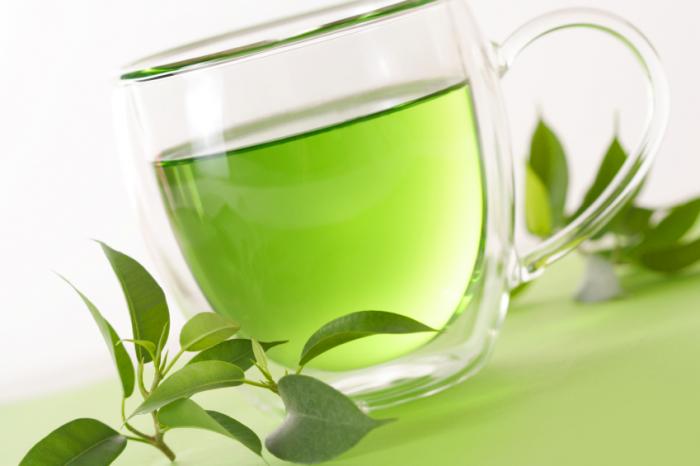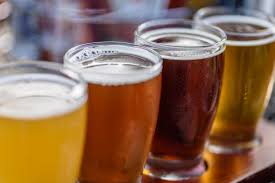When it comes to improving your mental health, some of the simplest strategies can have a huge impact.
Using a sauna regularly is one of them.
Infrared saunas in particular are becoming increasingly popular, and for good reason.
They have a number of brain and mental health benefits, as discussed in the book Sauna Therapy by Dr. Lawrence Wilson.
However, you don’t necessarily need an infrared sauna to experience health benefits. Even traditional saunas – available at most public gyms, spas and health centres – have a number of beneficial cognitive and psychological effects.
Once you start using a sauna, you should listen to your body to determine how much time you should spend in it. Start out slowly and increase the length of your sessions over time. Also make sure to drink lots of water before and after each session, and never consume alcohol in combination.
Read on to learn about the 13 ways traditional and infrared saunas can improve your brain and mental health.
1. Saunas Improve Mood and Reduce Depression
Saunas can really help people that struggle with depression.
Lots of research shows that they can make you feel euphoric. Saunas are somewhat stressful on the body, so your brain produces and releases more euphoric hormones to deal with it (53-55).
And these changes appear to be semi-permanent (56).
So if you use a sauna regularly, you'll end up being consistently happy.
Dr. Jeffrey Lieberman, MD, has completed two studies in which he had people with major depression sit in an infrared sauna.
In his first study, the participants had just one infrared sauna treatment and it reduced their symptoms by about 50%.
In his follow-up study, he found that a single session caused a rapid and powerful antidepressant effect, and the benefits continued for six weeks, which was unexpected.
He concluded that whole-body hyperthermia holds promise as a safe, rapid-acting, antidepressant treatment with a prolonged therapeutic benefit (57-58).
Other researchers have looked at the effects of infrared sauna therapy on mildly depressed patients with fatigue, appetite loss, and mental complaints. They found that sauna treatment significantly increased their appetite and reduced their mental complaints (59).
Whole-body heat therapy has also been shown to reduce depression in cancer patients (60-61).
And other research shows that sweating increases mental satisfaction and energy (62).
2. Saunas Reduce Anxiety and Stress
Not surprisingly, saunas can also reduce stress and anxiety.
Several studies have shown that regular sauna use lowers levels of cortisol, your body’s main stress hormone (49-52).
In one study, researchers found that using a sauna can reduce both state and trait anxiety (48).
And other research shows that sweating increases relaxation, and reduces feelings of frustration and anxiety (62).
Here are 21 other ways to reduce cortisol and increase your resilience to stress.
3. Saunas Increase Beta-Endorphins, Relieve Pain and Help Treat Fibromyalgia
Beta-endorphins are pain-relieving compounds that originate within your body.
Your brain produces and releases these natural painkillers during times of strenuous exercise, emotional stress and pain.
Since saunas are a stressor, the release of endorphins are increased when you spend time in one.
Several studies have shown that heat stress and heat exposure in a dry sauna cause a significant increase in beta-endorphin levels (28-32).
This may explain why research shows that sauna therapy can lessen the pain experienced by patients with fibromyalgia, a chronic syndrome characterized by widespread pain with tenderness in specific areas.
In one study, people with fibromyalgia experienced a 33 to 77 per cent reduction in pain after using an infrared sauna regularly. Six months after the study was done, the participants still reported a 28 to 66 per cent reduction in pain (35).
Other researchers have found the same thing and concluded that infrared sauna therapy is effective for the treatment of fibromyalgia (33-34).
Another way to relieve pain is by taking DL-Phenylalanine. It’s an amino acid that inhibits the breakdown of endorphins. I previously wrote about it here.
4. Saunas Increase Brain-Derived Neurotrophic Factor (BDNF)
Brain-derived neurotrophic factor (BDNF) is a naturally-occurring protein in the brain that lowers your risk of mental disease and improves your mood. It does this by protecting and repairing your brain cells and increasing the growth of new brain cells. Many researchers consider it a natural antidepressant because it can reduce anxiety and depression (5-13, 15).
Research suggests that if you struggle with mental illness, you likely have reduced levels of BDNF. But luckily, there are ways to boost it.
Using a sauna is one of the ways.
Research shows that heat exposure increases the expression of BDNF (14).
I previously provided 21 other ways to boost BDNF in this post.
5. Saunas Increase Norepinephrine Levels and May Help Treat Attention Deficit Hyperactivity Disorder (ADHD)
Norepinephrine, also called noradrenaline, is a hormone and neurotransmitter in the brain that can help with focus and attention.
Numerous studies have found that sauna use significantly increases norepinepherine levels (39-42).
In one study, women spent 20 minutes in a sauna, two times each week, and researchers witnessed an 86% increase in norepinephrine (43).
In another study, men that stayed in a sauna until exhaustion increased their norepinephrine levels by 310% (44-45).
Besides increasing norepinephrine, heat stress also increases your body’s ability to store norepinephrine for later release (46).
Medications that increase the reuptake norepinephrine are often prescribed to people with ADHD, so researchers believe that sauna therapy should be considered as an alternative treatment (47).
6. Saunas Encourage the Growth of Myelin
Myelin is a fatty, white substance that wraps around the end of many nerve cells. It forms an electrically insulating sheath that increases nerve condition speeds.
In other words, it allows your brain to send information faster and more efficiently, making it absolutely essential for the optimal functioning of your nervous system.
Heat stress increases prolactin, a hormone that promotes the production of myelin (16-19).
In one study, researchers had healthy young men stay in a sauna until they were exhausted, and they reported a 10-fold increase in prolactin (20-11).
In another study, women spent 20 minutes sauna, two times each week, and researchers witnessed a 510% increase in prolactin (22).
I previously provided 25 other ways to promote the growth of myelin in this post.
7. Saunas Reduce the Risk of Dementia
Dementia is obviously a major concern today.
It’s the third leading cause of death in the United States behind cardiovascular disease and cancer, and by 2050, it’s estimated that 13 million Americans and 160 million people globally will be affected by the disease (63).
There is currently a lack of effective treatment options, so simple tools to help with prevention are crucial.
It turns out that sauna therapy may be one of these tools.
Researchers tracked the health of more than 2,300 men in Finland for about 20 years. The men who used a sauna four to seven times each week had a 66 percent lower chance of developing dementia than men who used a sauna just once a week (64-68).
“We have taken into account other lifestyle factors, like physical activity and socioeconomic factors. There is an independent effect of sauna.”
I previously provided some other ways to reverse cognitive decline and dementia in this post.
Intranasal insulin can also help.
8. Saunas Reduce Psychological Symptoms of Anorexia
Anorexia nervosa, or simply known as anorexia, is an eating disorder characterized by a low weight, fear of gaining weight, a strong desire to be thin, and food restriction.
Researchers have examined the effects of sweating on anorexia and reported positive effects on hyperactivity, depression, and stress levels (27).
9. Saunas Reduce Symptoms of Chronic Fatigue
Chronic fatigue syndrome is a complex, incapacitating illness. It affects millions of people around the world and may affect up to 4 million people in the United States alone.
People struggling with this disorder not only have unrelenting fatigue lasting for 6 months or more, but also memory and concentration deficits, sleep disturbances, headaches, joint and muscle pain, and gastrointestinal and immune system dysfunction.
One study found that infrared sauna sessions significantly reduce fatigue in patients with chronic fatigue syndrome. It also significantly reduced their anxiety and depression (23).
I've had some clients with chronic fatigue say that their doctor recommended they stay out of the sun and avoid exposing themselves to too much heat. But the above study didn't find any negative effects in chronic fatigue patients from regular infrared sauna sessions (23).
Another study found that daily infrared sauna sessions dramatically improved symptoms of chronic fatigue syndrome, including fatigue, pain and sleep disturbances. The patients in the study didn’t improve with prednisolone, a steroid medication, but did improve with sauna therapy (24).
So if you struggle with chronic fatigue, infrared sauna therapy is definitely worth looking into.
10. Saunas Reduce Tension Headaches
"Chronic tension-type headache" is a syndrome characterized by frequent headaches that occur more than 15 days every month.
The intensity and duration of the headaches can be very distressing and disabling and affect a person's well-being.
But research shows that regular sauna use is a simple, self-directed treatment that is effective for reducing headache pain intensity (26).
11. Saunas Help Eliminate Heavy Metals
Some of the benefits of sauna usage occur because of increased sweating.
Many people don’t sweat very much, and this can cause problems because your skin acts as an important route of detoxification and helps you excrete heavy metals that are so prevalent in your modern environment. Common heavy metals in our environment include cadmium, arsenic, lead and mercury (36, 37).
Lack of sweating may actually result in increased toxic load over time, which can negatively affect your brain and mental health.
Research shows that mercury poisoning from dental amalgam affects the mind and emotions and plays a role in the development of mental illness (1).
But by sweating frequently in a sauna, you can enhance your detoxification pathways and help your body remove mercury (2, 4).
In fact, studies show that high mercury levels can be reduced to normal levels by using a sauna repeatedly (3).
Researchers have concluded that “sweat-inducing sauna use can provide a therapeutic method to increase elimination of toxic trace metals and should be the initial and preferred treatment of patients with elevated mercury levels” (38).
“Sweating offers potential and deserves consideration to assist with removal of toxic elements from the body.”
12. Saunas Increase Deep Sleep
Getting high-quality deep sleep is critical for optimal brain function and mental health.
And using a sauna regularly is one way to improve it.
Researchers in Finland report that sauna use is one of the factors that can result in deeper, more restful sleep (25).
This sleep supplement contains magnesium and a number of other natural compounds that I’ve used over the years to deepen sleep.
But I work with my clients so that they can naturally maximize the quality of their sleep without so many supplements. We have free online workshop that talks about how you can work with us. You can register for the workshop here.
13. Saunas Support Thyroid Function
Your thyroid is a small butterfly-shaped gland located in your neck below your Adam’s apple, and lots of research shows that thyroid dysfunction can contribute to mental health problems.
One of the main threats to the health of your thyroid is non-biological halogens. These include bromine, fluorine, chlorine, and perchlorate, which are often found in tap water.
Your thyroid doesn’t know the difference these halogens and iodine, a trace mineral necessary for proper thyroid function.
Your thyroid soaks up the halogens and uses them like iodine. By occupying iodine receptors, they inhibit the production of your thyroid hormones, and contribute to thyroid dysfunction.
But don’t worry – sauna use can help your body excrete halogens (69).
The more you can excrete the halogens, the more your body will be able to use iodine to produce thyroid hormones.
I also recommend reducing your exposure by filtering your drinking and shower water. Brita filters aren't enough because they don’t remove fluoride. I use a Berkey water filter to make sure I’m drinking the purest water available. It filters everything out of the water. I also use this filter to remove chlorine from my shower water.
I highly recommend getting a full thyroid panel done regularly.
Check out this post for more ways to support your thyroid.
Conclusion
As you can see, saunas have a number of beneficial effects on the brain and can help you manage and overcome your mental health challenges.
I’ve been doing a lot of research into saunas recently and have concluded that infrared saunas have additional benefits and are much more gentle and effective than the traditional “hot rock” saunas.
Unfortunately, most infrared saunas emit unsafe levels of electromagnetic fields (EMFs).
However, I did find a company that has a patent on low-EMF infrared saunas. Their saunas are also very well built and have a lifetime warranty. So I'm going to go with one of their saunas. You can get one here.
References:
(1) https://www.ncbi.nlm.nih.gov/pubmed/2618948
(2) https://www.ncbi.nlm.nih.gov/pubmed/22315626/
(3) https://www.ncbi.nlm.nih.gov/pmc/articles/PMC3312275/
(4) https://www.ncbi.nlm.nih.gov/pubmed/3218899/
(5) http://www.hindawi.com/journals/tswj/2009/624894/abs/
(6) http://www.ncbi.nlm.nih.gov/pmc/articles/PMC2504526/
(7) http://www.sciencedirect.com/science/article/pii/S0006322303001811
(8) http://www.sciencedirect.com/science/article/pii/0896627391902733
(9) http://www.sciencedirect.com/science/article/pii/S0166432812006997
(10) http://www.sciencedirect.com/science/article/pii/S0006899306027144
(11) http://www.ncbi.nlm.nih.gov/pubmed/25568448
(12) http://www.ncbi.nlm.nih.gov/pmc/articles/PMC23964/
(13) https://www.ncbi.nlm.nih.gov/pmc/articles/PMC23964/
(14) https://www.ncbi.nlm.nih.gov/pubmed/21385602
(15) https://www.ncbi.nlm.nih.gov/pubmed/20594764
(16) http://www.ncbi.nlm.nih.gov/pubmed/2830109
(17) https://www.ncbi.nlm.nih.gov/pubmed/15234248
(18) https://www.ncbi.nlm.nih.gov/pubmed/17314279
(19) https://link.springer.com/article/10.1007%2FBF00691246
(20) https://www.ncbi.nlm.nih.gov/pubmed/11165553
(21) https://www.ncbi.nlm.nih.gov/pubmed/2759081
(22) https://www.ncbi.nlm.nih.gov/pubmed/2830109
(23) https://www.ncbi.nlm.nih.gov/pubmed/25748743
(24) http://www.ncbi.nlm.nih.gov/pubmed/15992574/
(25) https://www.ncbi.nlm.nih.gov/pubmed/3363395
(26) https://www.ncbi.nlm.nih.gov/pubmed/25636135
(27) http://journals.plos.org/plosone/article?id=10.1371/journal.pone.0041851
(28) https://www.ncbi.nlm.nih.gov/pubmed/11165553
(29) https://www.ncbi.nlm.nih.gov/pubmed/2759081
(30) https://www.ncbi.nlm.nih.gov/pubmed/3002937
(31) https://www.ncbi.nlm.nih.gov/pubmed/8061252
(32) https://www.ncbi.nlm.nih.gov/pubmed/3218898
(33) https://www.jstage.jst.go.jp/article/internalmedicine/47/16/47_16_1473/_pdf
(34) https://www.jstage.jst.go.jp/article/internalmedicine/47/16/47_16_1473/_article
(35) https://www.ncbi.nlm.nih.gov/pubmed/21742283
(36) https://www.hindawi.com/journals/jeph/2012/184745/
(37) https://www.hindawi.com/journals/jeph/2012/184745/
(38) https://www.hindawi.com/journals/jeph/2012/184745/
(39) http://www.ncbi.nlm.nih.gov/pubmed/2759081
(40) http://www.ncbi.nlm.nih.gov/pubmed/2830109
(41) https://link.springer.com/article/10.1007%2FBF00691246
(42) https://www.ncbi.nlm.nih.gov/pubmed/15234248
(43) https://www.ncbi.nlm.nih.gov/pubmed/2830109
(44) https://www.ncbi.nlm.nih.gov/pubmed/11165553
(45) https://www.ncbi.nlm.nih.gov/pubmed/2759081
(46) https://www.ncbi.nlm.nih.gov/pubmed/4008413
(47) https://www.ncbi.nlm.nih.gov/pubmed/12621106
(48) https://www.ncbi.nlm.nih.gov/pubmed/18396259
(49) http://www.ncbi.nlm.nih.gov/pubmed/3788622
(50) http://www.ncbi.nlm.nih.gov/pubmed/2759081
(51) https://www.ncbi.nlm.nih.gov/pubmed/11165553
(52) https://www.ncbi.nlm.nih.gov/pubmed/2759081
(53) https://www.ncbi.nlm.nih.gov/pubmed/3002937
(54) https://www.ncbi.nlm.nih.gov/pubmed/8061252
(55) https://www.ncbi.nlm.nih.gov/pubmed/3218898
(56) http://www.ncbi.nlm.nih.gov/pubmed/9103537
(57) https://www.ncbi.nlm.nih.gov/pubmed/27172277
(58) http://blogs.webmd.com/mental-health/2016/07/can-sitting-in-a-sauna-ease-depression.html
(59) https://www.ncbi.nlm.nih.gov/pubmed/16046381
(60) http://www.ncbi.nlm.nih.gov/pubmed/1607735
(61) http://www.tandfonline.com/doi/abs/10.3109/02656739209021785?journalCode=ihyt20
(62) http://digital.library.okstate.edu/etd/umi-okstate-1543.pdf
(63) https://www.ncbi.nlm.nih.gov/pubmed/24598707/
(65) https://www.sciencedaily.com/releases/2016/12/161216114143.htm
(67) http://www.ctvnews.ca/health/studies-show-saunas-can-protect-against-heart-brain-diseases-1.3232765
(69) http://fitness.mercola.com/sites/fitness/archive/2016/09/09/sauna-bathing.aspx
(70) http://articles.mercola.com/sites/articles/archive/2014/05/04/detoxification-program.aspx




























